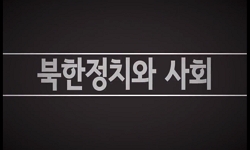Although the nuclear nonproliferation regime appears to have pre-vented relatively well the spread of nuclear weapons toward non-nuclear states since the late 1960s, the future of the regime seems to be neither stable nor optimistic. In fact, it faces...
http://chineseinput.net/에서 pinyin(병음)방식으로 중국어를 변환할 수 있습니다.
변환된 중국어를 복사하여 사용하시면 됩니다.
- 中文 을 입력하시려면 zhongwen을 입력하시고 space를누르시면됩니다.
- 北京 을 입력하시려면 beijing을 입력하시고 space를 누르시면 됩니다.
부가정보
다국어 초록 (Multilingual Abstract)
Although the nuclear nonproliferation regime appears to have pre-vented relatively well the spread of nuclear weapons toward non-nuclear states since the late 1960s, the future of the regime seems to be neither stable nor optimistic. In fact, it faces a serious crisis, and one of the most significant challenges comes from weak states like North Korea and Iran which try to develop nuclear weapons program. This paper examines the diverse challenges raised by these nations and explains the nonproliferation regime's inability to meet them. The challenges include the issue of withdrawal from the NPT, the regime's vulnerability to member states' noncooperative behaviors like reluctant or ex post facto confession of violation and refusal to cooperate with the IAEA. This paper argues that these challenges result not only from the regime's structural limitation but also from the strong influence of international anarchy and power politics in the nuclear issue. Because the regime has much difficulty in preventing even weak nations' efforts when they try to develop nuclear weapons in the name of security, it is necessary to recognize the regional political context in dealing with the challenges. It is of course important to correct the structural weaknesses in the regime itself, but power politics and political consideration in international anarchy is inherent in the nuclear issue.
동일학술지(권/호) 다른 논문
-
Making a Small American Army : Founding of the ROK Military Forces, 1945-1948
- 고려대학교 일민국제관계연구원
- Jongnam Na(나종남)
- 2009
- KCI등재
-
- 고려대학교 일민국제관계연구원
- 최치원(Chi-won Choi)
- 2009
- KCI등재
-
- 고려대학교 일민국제관계연구원
- 이재승(Jae-Seung Lee)
- 2009
- KCI등재
-
- 고려대학교 일민국제관계연구원
- 홍태영(Tai-Young Hong)
- 2009
- KCI등재





 DBpia
DBpia







